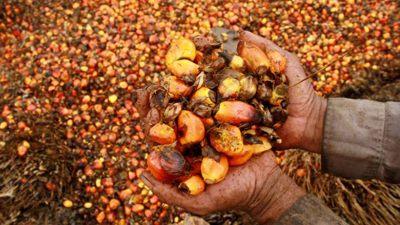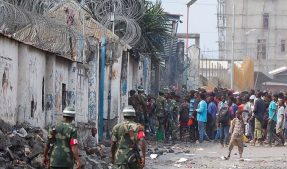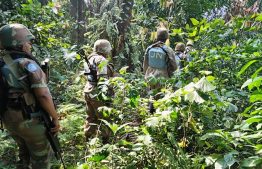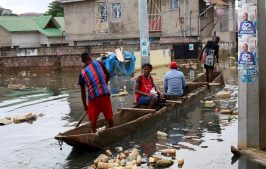In the Congolese town once home to the palm oil plantations of Anglo-Dutch conglomerate Unilever, memories of forced labour mingle with nostalgia for its lost decades of prosperity.
Formerly known as Leverville, the town is now called Lusanga.
Grass grows in the remains of villas, offices are abandoned and factories are in ruin, testament to the tumultuous history of this part of southwest Democratic Republic of Congo.
Back in 1911, while a Belgian colony, vast concessions of palm tree forests were granted to English entrepreneur William Lever, whose company Lever Brothers gave birth two decades later to Unilever, an international food and consumer products giant.
Today former plantation workers and their descendants recall stories of suffering under the colonial yoke but also times of economic activity that vanished after Unilever pulled out of the region.
For a company that “began as a maker of soap on an industrial scale to become the multinational Unilever, it owes that in part to Congo,” said Belgian historian David van Reybrouck in his book on the vast African country’s history.
During the time of the Belgian Congo, palm oil production was based on a system of coercion.
Severin Mabanga, who worked in the industry in the 1970s, said colonial-era workers were recruited “by force with the complicity of the village chief to come and cut down the palm nuts”.
“They lit a fire at the foot of the palm tree so that the apprentice cutter wouldn’t try to climb down from the tree” before finishing his task, said Mabanga, 65, who now makes baskets for a living.
Plantation workers were also forced to perform risky tasks like climbing the trunks of trees 10 metres (33 feet) high to pluck heavy bunches of palm nuts for starvation wages.
When the palm oil industry was plunged into the global economic crisis of 1929, Unilever used wage cuts to partly compensate for its losses.
Anger over that move combined with strong resentment against the colonial administration in 1931 touched off the biggest revolt in the history of the Belgian Congo — which was crushed by a brutal crackdown that left hundreds dead.
During the time of the Belgian Congo, palm oil production was based on a system of coercion
After independence in 1960, the palm oil plantations suffered from declining productivity, competition from Southeast Asia and dictator Mobutu Sese Seko’s policy of confiscating foreign-owned businesses in the country he had renamed Zaire.
Unilever eventually recovered its palm oil production in 1977 and switched its focus to the domestic market with oil for cooking rather than for making soap. But it faced competition from homemade oils and dwindling profits.
Unilever began slowly to disengage from DR Congo and had left completely by 2009 after the country went through two civil wars between 1996 and 2003.
But there was a time during the 1970s and 80s in the era of the Lever Plantations of Zaire (PLZ) that “there was a lot of economic activity, people were happy”, said Thomas-Michel Mondenge, a regional administrative official.
Mabanga recalled that medical care was free and “we had the means to pay for the children’s schooling”.
But once the palm oil production foundered, so did the local economy.
Some former PLZ workers want to believe an economic miracle could still happen.
They’re counting on a promise to re-launch economic activity by a Colombian company, according to Mondenge.
While Lusanga recently inaugurated an arts centre project to encourage production of arts and crafts in the region, it remains a town with no tap water, electricity or shops to buy basic goods.
The DR Congo today imports huge amounts of palm oil.
– By AFP






